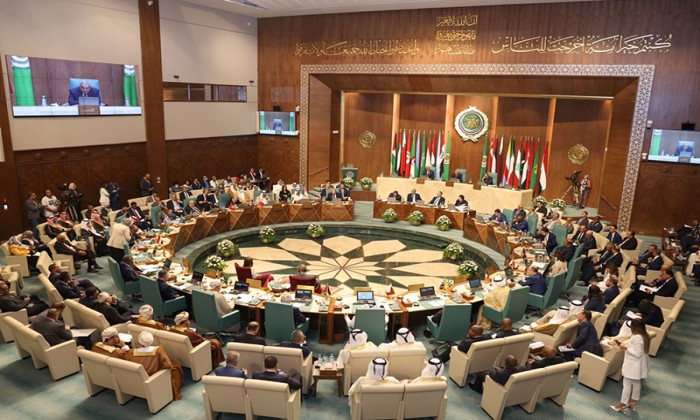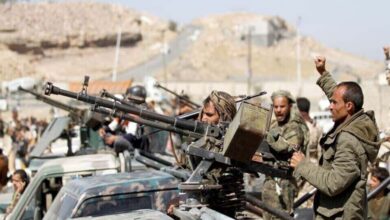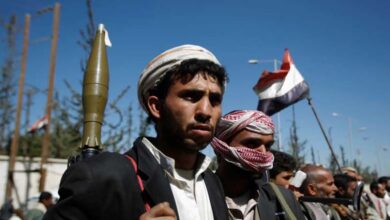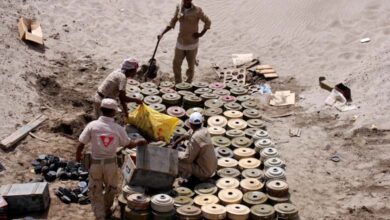Before the Arab summit… Saudi Arabia hosts the preparatory meeting of Arab foreign ministers

The Arab foreign ministers held a series of meetings of ministerial committees concerned with following up on several important issues before the start of the preparatory ministerial meeting, which is preparing an agenda and draft resolutions that will be submitted to the 32nd Arab Summit in Jeddah, Saudi Arabia.
Meeting series
This series of meetings began with a meeting of a committee to follow up on the implementation of the decisions and commitments of the Arab Summit in Algeria at the ministerial level, which includes: the troika of the presidency of the Arab Summit, Algiers (current presidency of the Arab Summit), Saudi Arabia (future), Tunisia (former) and the troika of the Council of the League of Arab States at the ministerial level, Egypt (current President), Libya (former President), Morocco (future Presidency) and the Secretary-General of the Arab League.
The committee discussed a report prepared by its senior officials to follow up on the implementation of the decisions and recommendations of the recent Arab summit in Algiers and the extent of the countries’ commitment to the implementation of these resolutions. It also held a meeting of the Arab ministerial committee to follow up on the developments of the crisis with Iran, chaired by the Kingdom of Saudi Arabia, whose members include the United Arab Emirates, Bahrain, and Egypt, in addition to the Secretary-General of the Arab League.
The third meeting is that of the Open-Ended Arab Ministerial Committee for the Support of Palestine, which includes Algeria as Chairman and the membership of Jordan, Saudi Arabia, Palestine, Qatar, Lebanon, Egypt, Morocco, and Mauritania, in addition to the Secretary-General of the Arab League. The committee is concerned with following up the Arab action in the international arena to support the Palestinian cause and to work for Palestine to gain full membership in the United Nations and to support Palestine politically, economically, and in the media on the international stage.
The last meeting is the meeting of the ministerial committee charged with studying the proposal of Algerian President Abdelmadjid Tebboune on the modernization and development of the Arab League, made up of Algeria as President and with the membership of Tunisia, Saudi Arabia, Qatar, Libya, Egypt and the Kingdom of Morocco, in addition to the Secretary-General of the Arab League. This committee is discussing several proposals put forward by Abdelmadjid Tebboune, President of the Arab Summit at its thirty-first session, on how to develop and modernize the Arab League to keep pace with the changes in the international arena.
A Momentous Summit
Dr. Hamid Fares, a specialist in Arab and international affairs, says that the Arab summit in Jeddah is very important because it is a summit at a crossroads for the formulation of balanced Arab international and regional relations, especially since the Kingdom of Saudi Arabia has arranged the summit in a good way, especially about the course of Arab and regional relations, especially after the resumption of relations with Iran.
He added that this summit is taking place at precise times and critical moments in the life of the Arab region, within the framework of new regional cooperation projects, in conjunction with the Kingdom of Saudi Arabia’s keenness on the success of the Arab summit, which will be titled the return of Syria to the Arab League, after the invitation of Syrian President Bashar Al-Assad to attend. He noted that the Arab summit scheduled for the day after tomorrow is a summit for self-restoration, the formation and formulation of Arab, international, and regional policies, and discussion of open files, including the Libyan file and the Sudanese file, which will be at the top of the list.
He explained that the Kingdom of Saudi Arabia is working hard to make the Jeddah summit a success, and sees it as a suitable opportunity for Syria to return to the Arab League, as a complement to regional understandings that were recently worked on, including self-reform with Iran, in preparation for resolving the thorny Yemeni dilemma later on.
Special importance
Ahmed El-Sayed, a researcher at the Egyptian Center for Thought and Strategic Studies, said that the upcoming Arab summit is of special importance because it coincides with a time when the region is going through major changes. It started whistling the problems with Syria, and it has returned to the Arab League once again. He expected that the summit would attach the utmost importance to finding a way out of the economic crises that many countries in the region are suffering from, while working to find a peaceful solution to the Sudanese crisis that would spare Sudan the scourge of war and its catastrophic repercussions on the region, stressing also the importance and centrality of the Palestinian issue, the criticisms of the recent settlement policies of Israel, in addition to stressing the importance of joint Arab action to face security challenges and combat terrorism in the region.
Regarding indications that Syria will return to the Arab League and participate in this summit for the first time since 2011, he said it is expected that some Arab countries, especially the United Arab Emirates, will announce economic and investment projects in Syria. The Arab recognition of Syria will prompt countries and international organizations to begin recognizing the Syrian regime and then dealing with it.












